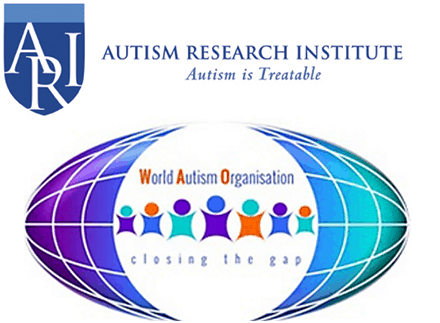“I founded Neurodiversity Celebration Week in 2018 because I wanted to change the way learning differences are perceived. As a teenager who is autistic and has ADHD, dyslexia, and dyspraxia, my experience has been that people often focus on the challenges of neurological diversity. I wanted to change the narrative and create a balanced view which focuses equally on our talents and strengths.”
Siena Castellon, Founder of Neurodiversity Celebration Week
Such cultural narrative shifts are reflected in the continued evolution of autism science and investigation. Contemporary autism research emphasizes assessments and care that amplify individuals’ strengths and place happiness and quality of life at the forefront of care goals.
In recognition of #NeurodiversityCelebrationWeek, we have gathered a list of resources that may serve as a starting point for learning about the power, strengths, and capabilities of our neurodiverse peers and how we can best support them.
____________________________
Neurodiversity Webinars
From Special to H.A.P.P.Y.
Peter Vermeulen, Ph.D., considers a positive approach to psychoeducation for autistic individuals. He draws on over 25 years of experience to illustrate contemporary changes in autism intervention focus and discourse. The speaker outlines critical characteristics of autism psychoeducation and underscores the need to create measurements and questionnaires based on well-being and happiness. He outlines a new psychoeducation program for autism, focusing on skill development, self-understanding, and quality of life. Vermeulen outlines critical understandings to inform positive psychoeducation before the Q&A session.
Maximizing Neurodiversity: Education & Jobs
In this webinar, scientist and psychiatrist Lawrence Fung, MD, Ph.D., discusses what neurodiversity is and how increased awareness and support benefit not only neurodiverse individuals but the global population as a whole. He outlines the Strengths-Based Model of Neurodiversity and presents the newly implemented Stanford initiatives for neurodiverse student and employment support.
Gender and Autism
In this webinar, Gray Atherton, Ph.D., details the socialization of the female gender experience and how that plays into autism gender biases. The speaker discusses the experiences of autistic women, highlighting that gender is a critical barrier to diagnosis and care. Atherton details recent investigations into implicit gender biases in autism and their impact on medical care and autism understanding. She evidences contemporary shifts in the zeitgeist of gender and autism and provides suggestions for future research. The presenter offers sources and acknowledgments before the Q&A, where she discusses masking, minorities and misdiagnosis, videogaming and autism, and much more.
Autism Research: Nothing About Me Without Me
In this webinar, ARI board member Dr. Wenn Lawson discusses the concept of neurodiversity and how it relates to creating a more inclusive society. He emphasizes the importance of recognizing that there is no "normal" brain and that everyone's brain is wired differently. This diversity in thinking and processing information should be celebrated and used as a strength. The concept of neurodiversity applies to all people, not just certain individuals, and we need to create environments where everyone can thrive and be successful, regardless of their unique differences. The video also discusses the broader concept of diversity and how it's important to recognize and celebrate the unique strengths and talents of each individual.
Examining the Transition to Adulthood in Autism: Challenges and Opportunities in the Aim of Thriving
David B. Nicholas, Ph.D., examines the transition to adulthood and its implications for autistic individuals. He presents the ecosystem mentality and discusses recent findings supporting a holistic and future-oriented integrated care system. The speaker details potential areas of capacity building within post-secondary education and employment and highlights the need for cross-sector collaboration and lifelong care. Nicholas summarizes the presentation, underscoring changes in contemporary discourse, and considers future avenues of research before the Q&A session.
Parents and Caregivers: The Importance of Self-Care
Amanda Tami, LPC, BCBA, discusses the importance of self-care for adult caregivers supporting people with special needs, including autism. She provides context for mental health in the US and highlights the importance of self-care in the modern world. The speaker outlines factors that affect mental health, discusses burnout compared to depression, and describes issues with the way society views and idealizes self-care. Tami reframes self-care using five key aspects to create more accessible and realistic expectations for adult caregivers. She emphasizes short personalized self-care routines that can be done alongside other responsibilities and notes the trial and error of discovering what works. Throughout the presentation, Tami highlights community support and socialization. She provides references and resources before the Q&A.
Transition to Adulthood
Stephen Shore, Ed.D., recounts his experiences with autism and discusses the support systems that helped him transition to adulthood and independence. He describes the ability-based approach and uses anecdotal stories to portray its potential for assisting with transitions and overall quality of life. Shore presents suggestions to help individuals find what and how to disclose and underscores the importance of finding strengths by looking at personal interests. The speaker notes difficulties in sexual experiences and education for youth with autism and reiterates the importance of self-advocacy, especially during and after the pandemic. He closes with a question-and-answer session.
____________________________
Resources from AideCanada
Research Summary: Organizational Benefits of Neurodiversity: Preliminary Findings on Autism and the Bystander Effect
Toolkit/Article: LGBTQ2S+ Toolkit, Celebrating Neurodiversity, Gender Diversity and the Community
Online Course: Supporting Neurodivergent Guests And Colleagues
Toolkit: How to be an Ally to the Autistic Community
Webinar: Building Understanding, Informing Action: Six Principles for Inclusion
Webinar: Exploring Respite & its Importance for Caregivers
Resource Collection: Healthy Relationships and Sexuality Collection
____________________________
ARI Articles
Making Employment Work - By Barbara Bissonnette, CEC
Support Means Knowing Who I Am - Excerpt from Adults with ASD ARI E-bulletin, Nov. 2013
Workplace Accommodations: Tips - By Melanie Jordan, BS, CESP
____________________________
Neurodiversity Books by ARI Collaborators
Taking off the Mask: A Practical Guide for Managing Autistic Camouflaging and Mental Health
By Dr. Hannah Louise Belcher
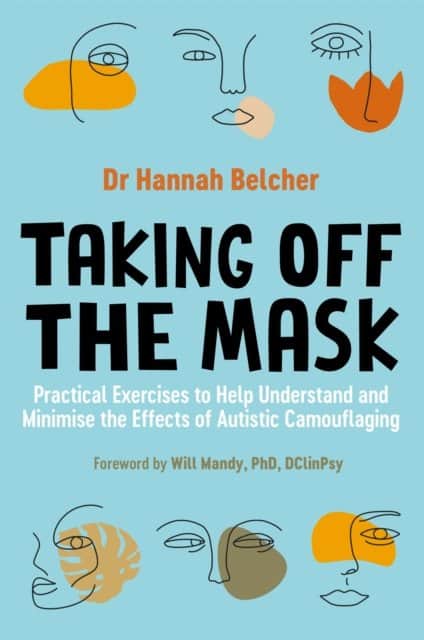 'I realised I had been camouflaging my whole life - I'd been trying to mask my autistic traits and fit in with all the non-autistic people around me.'
'I realised I had been camouflaging my whole life - I'd been trying to mask my autistic traits and fit in with all the non-autistic people around me.'
Growing up autistic can often feel as though you have to become a chameleon in social situations, camouflaging yourself to fit in with a seemingly neurotypical world. Combining lived experience with scientific research and practical advice, this book is the essential guide to understanding why you mask and how to feel confident without one.
Focusing on diagnostic devices like the Camouflaging Autistic Traits Questionnaire (CAT-Q) to discover the situations in which you mask the most and why, alongside a range of techniques, from CBT, compassion-based therapy, DBT, and mindfulness to relieve anxiety and reduce stress, this guide gives you all the tools and confidence you need to re-connect with yourself, the things you love and finally, take off your mask.
For more content related to this author:
- Read our article on Women in Autism, which includes quotes from Dr. Belcher.
- Watch this webinar on Delayed and Missed Diagnosis of Autistic Women, presented by Dr. Belcher.
Different Not Less: Inspiring Stories of Achievement and Successful Employment from Adults with Autism, Asperger's, and ADHD
By Dr. Temple Grandin
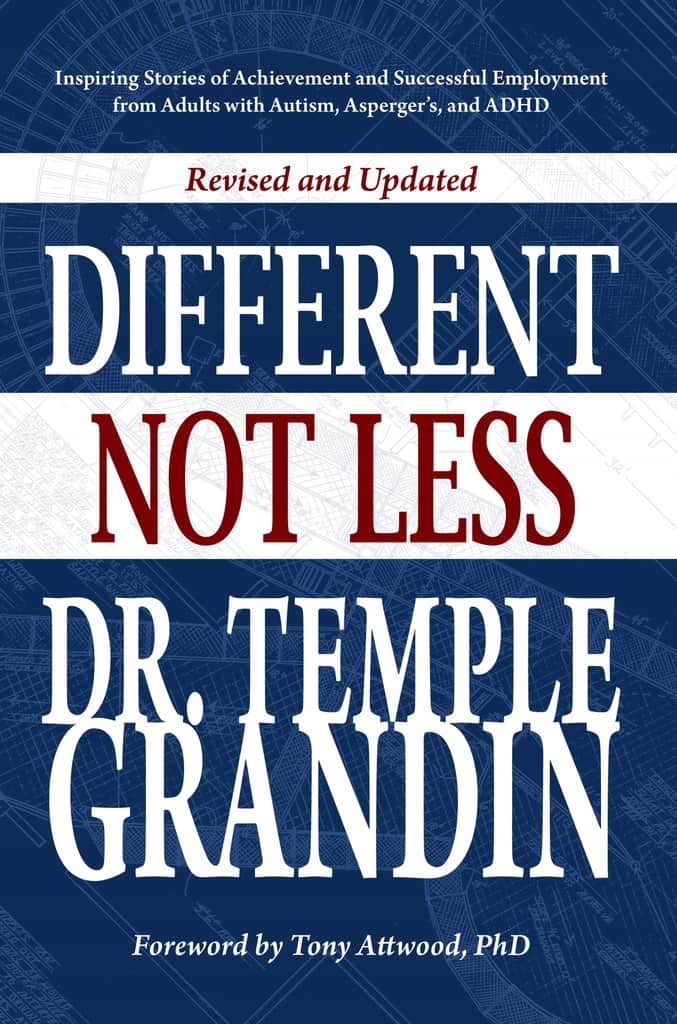 Temple’s primary mission is to help people with ASD and ADHD tap into their hidden abilities. Temple chose contributors from a wide variety of skill sets to show how this can be done. Each individual tells their own story, in their own words, about their lives. From relationships, bullying, making eye contact, honing social skills, and eventual careers, these stories have something everyone can learn from.
Temple’s primary mission is to help people with ASD and ADHD tap into their hidden abilities. Temple chose contributors from a wide variety of skill sets to show how this can be done. Each individual tells their own story, in their own words, about their lives. From relationships, bullying, making eye contact, honing social skills, and eventual careers, these stories have something everyone can learn from.
Different ... Not Less shows how, with work, each of the contributors:
- Found mentors
- Learned skills necessary for employment
- Became successfully employed
- Developed self-con¬fidence
- Faced the challenges of forming and maintaining relationships and sometimes raising families
If you’ve read the first edition, you’ve only gotten half the story. Temple Grandin and these amazing contributors proudly display their growth as they take us along on their journeys.
For more content related to this author:
- Read Dr. Grandin's article, Inside ASD, where she talks about her lived experience with Autism.
- Read Dr. Grandin's article, Employment and Autism Tips
The Passionate Mind: How People With Autism Learn
By Dr. Wenn Lawson
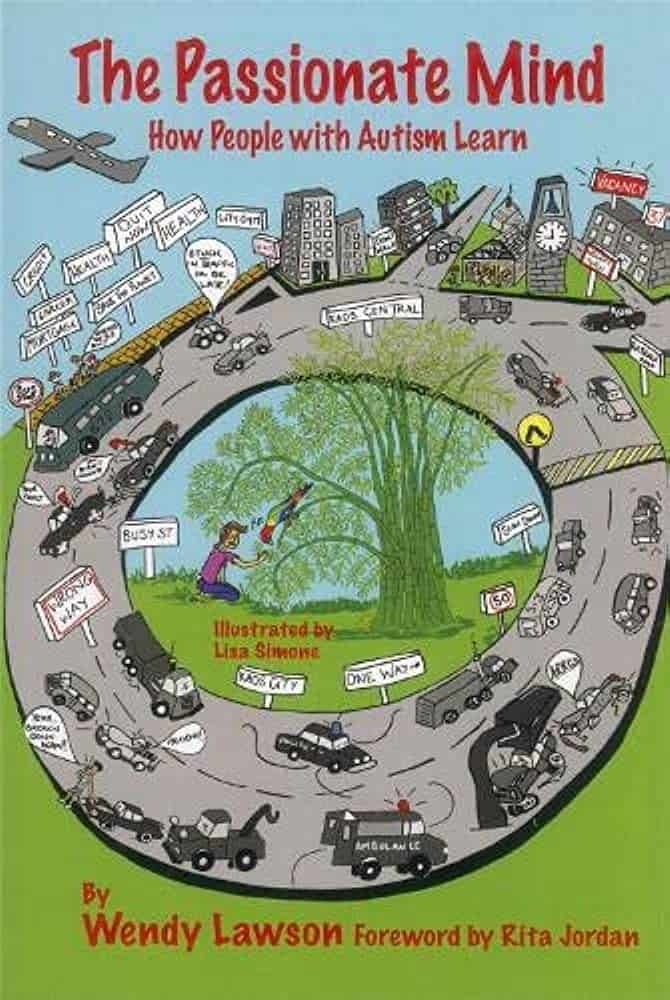 Dr. Lawson examines traditional theories about the autism spectrum (AS) and reveals their gaps and shortcomings. Showing that a completely different way of thinking about AS is needed. He sets forward the theory of Single Attention and Associated Cognition in Autism (SAACA), an approach that explains autism in terms of the unique learning style of AS individuals. The SAACA approach suggests that whereas neurotypical people can easily shift their attention from one task to another, those on the autism spectrum tend to use just one sense at a time, leading to deep, intense attention. From the perspective of this new approach, Dr. Lawson describes practical outcomes for individuals, families, and places of education and employment and shows that when the unique learning style of AS is understood, valued, and accommodated, AS individuals can be empowered to achieve their fullest potential. This is a fascinating read for anyone with a personal or professional interest in the autism spectrum, including clinical practitioners, educators, researchers, individuals on the spectrum and their families, teachers, occupational therapists, and other professionals.
Dr. Lawson examines traditional theories about the autism spectrum (AS) and reveals their gaps and shortcomings. Showing that a completely different way of thinking about AS is needed. He sets forward the theory of Single Attention and Associated Cognition in Autism (SAACA), an approach that explains autism in terms of the unique learning style of AS individuals. The SAACA approach suggests that whereas neurotypical people can easily shift their attention from one task to another, those on the autism spectrum tend to use just one sense at a time, leading to deep, intense attention. From the perspective of this new approach, Dr. Lawson describes practical outcomes for individuals, families, and places of education and employment and shows that when the unique learning style of AS is understood, valued, and accommodated, AS individuals can be empowered to achieve their fullest potential. This is a fascinating read for anyone with a personal or professional interest in the autism spectrum, including clinical practitioners, educators, researchers, individuals on the spectrum and their families, teachers, occupational therapists, and other professionals.
Concepts of Normality: The Autistic and Typical Spectrum
By Dr. Wenn Lawson
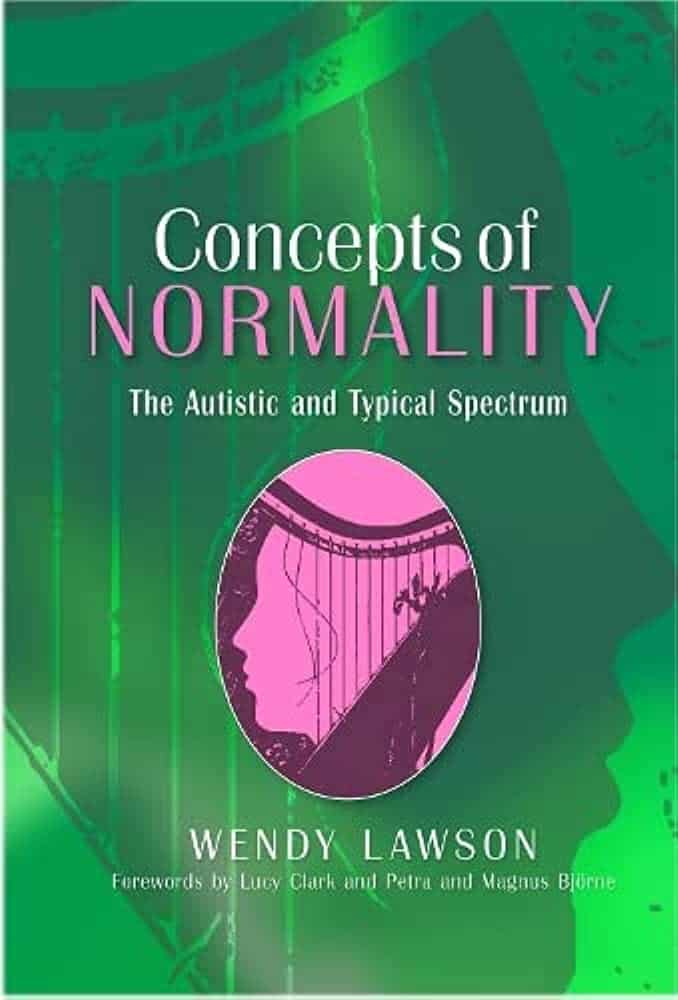 For those with autism, understanding 'normal' can be a difficult task. For those without autism, the perception of 'normal' can lead to unrealistic expectations of self and others. This book explores how individuals and society understand 'normal' in order to help demystify and make accessible a full range of human experiences.
For those with autism, understanding 'normal' can be a difficult task. For those without autism, the perception of 'normal' can lead to unrealistic expectations of self and others. This book explores how individuals and society understand 'normal' in order to help demystify and make accessible a full range of human experiences.
Dr. Lawson outlines the theory behind the current thinking and beliefs of Western society that have led to the building of a culture that fails to be inclusive. He describes what a wider concept of 'normal' means and how to access it, whether it's in social interaction, friendships, feelings, thoughts, and desires, or various other aspects of 'normality.' Practical advice is offered on a range of situations, including how to find your role within the family, how to integrate `difference' into everyday society, and how to converse and connect with others.
Accessible and relevant to people both on and off the autism spectrum, this book offers a fresh look at what it means to be `normal.'
For more content related to this author:
- Read our article on Gender Discomfort and Autism, which includes insights from Dr. Lawson
- Watch Dr. Lawson's webinar, Aging and Autism
- Watch Dr. Lawson's webinar, Gender Dysphoria and ASD
- View more books written by Dr. Lawson
Autism Research: Nothing About Me Without Me
Dr. Wenn Lawson discusses “nothing about us without us” and capacity building to enable the benefits of participatory research co-production. He differentiates traditional, participatory, and co-production research methodologies and recounts his experiences in
Transition to Adulthood
Stephen Shore, Ed.D., recounts his experiences with autism and discusses the support systems that helped him transition to adulthood and independence. He describes the ability-based approach and uses anecdotal stories to portray its
Friends & Family: What to say
As a friend or a family member to a loved one who has recently received an autism diagnosis, it can be challenging to know the right way to be supportive. Here are
Transition – Dena Gassner, MSW, LMSW
Published: 05/02/2013 "Transition: Stacking the Deck in Your Favor," is presented by Dena Gassner, MSW, LMSW; she is an adult on the autism spectrum. The 40-minute-plus video provides excellent information on many


